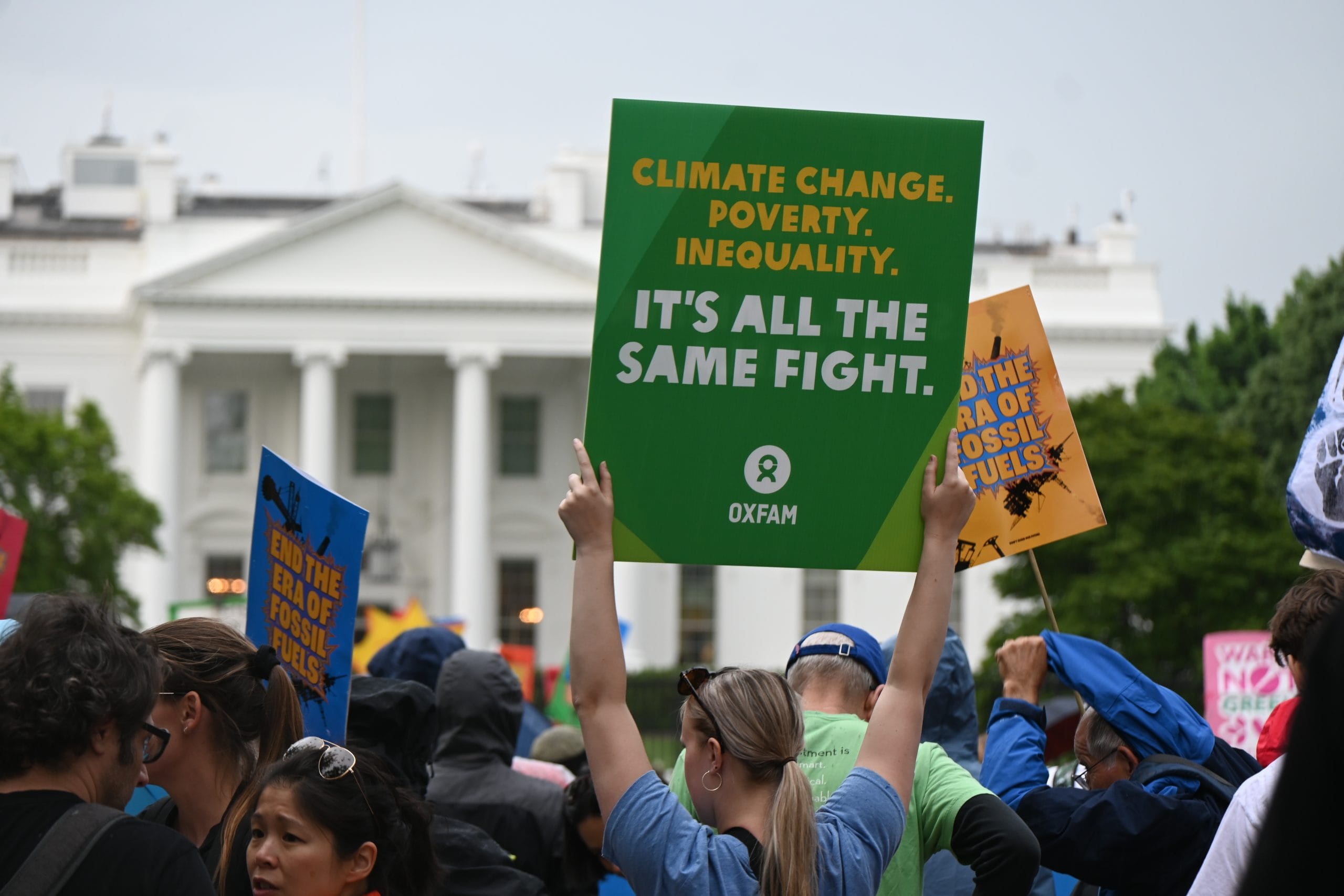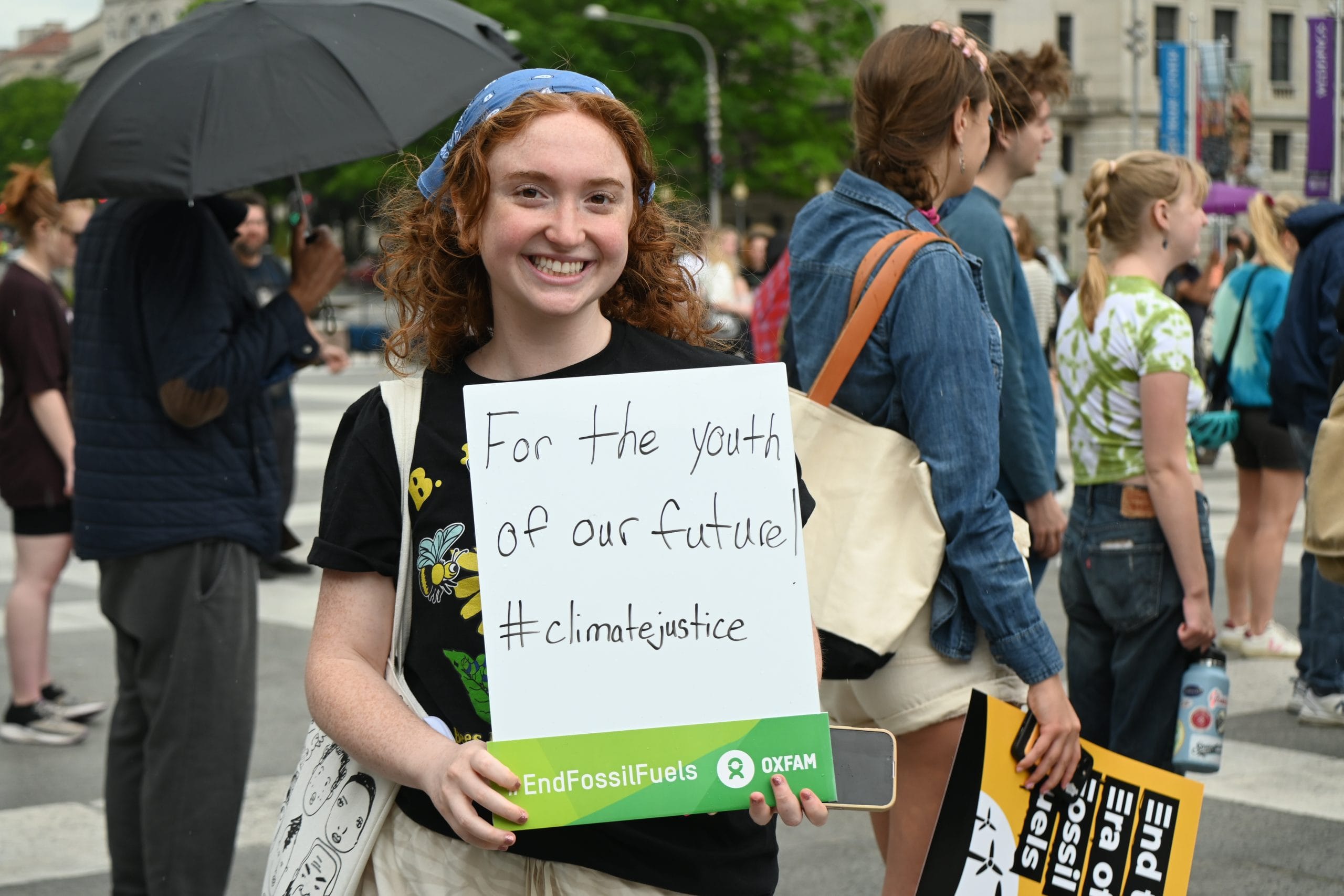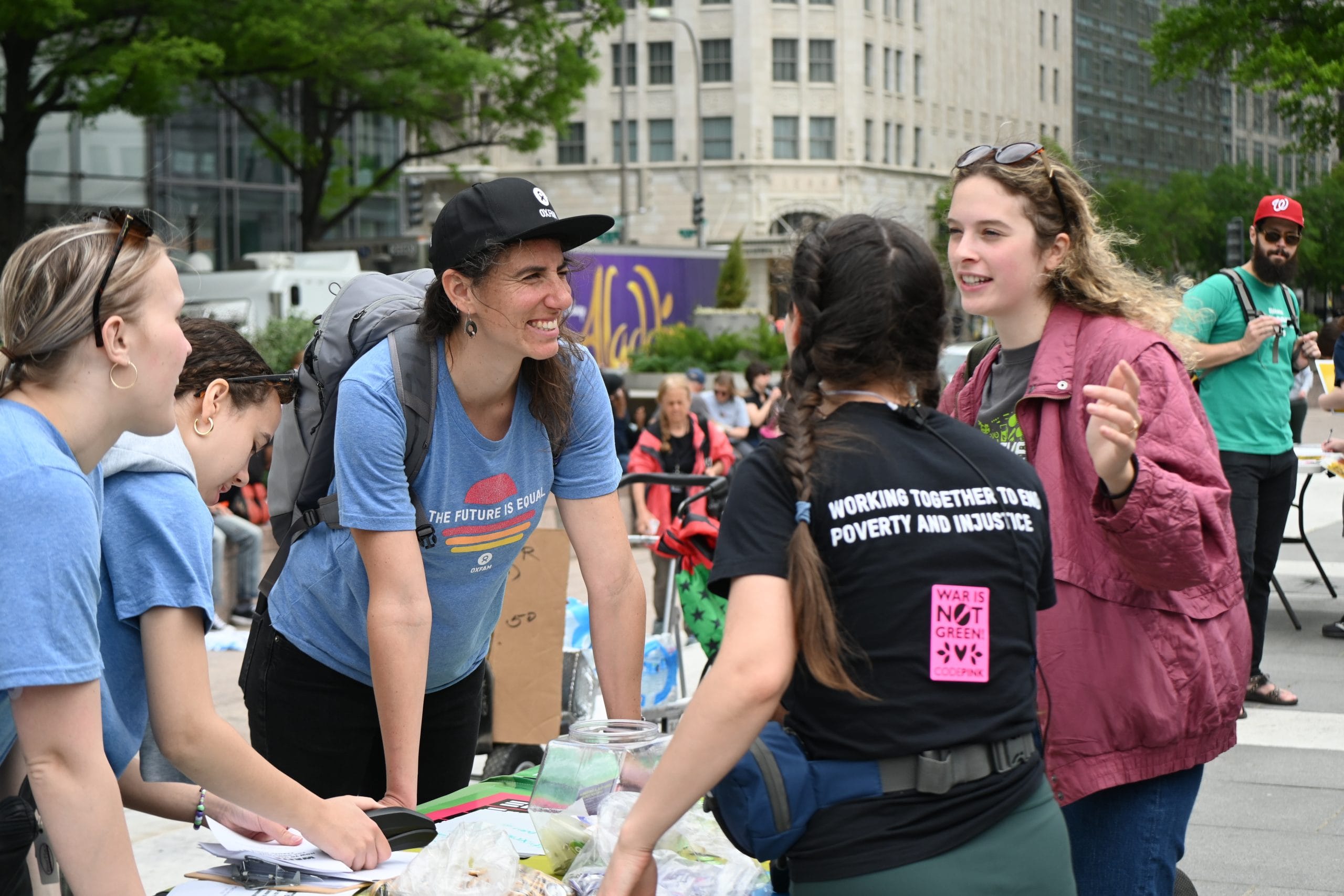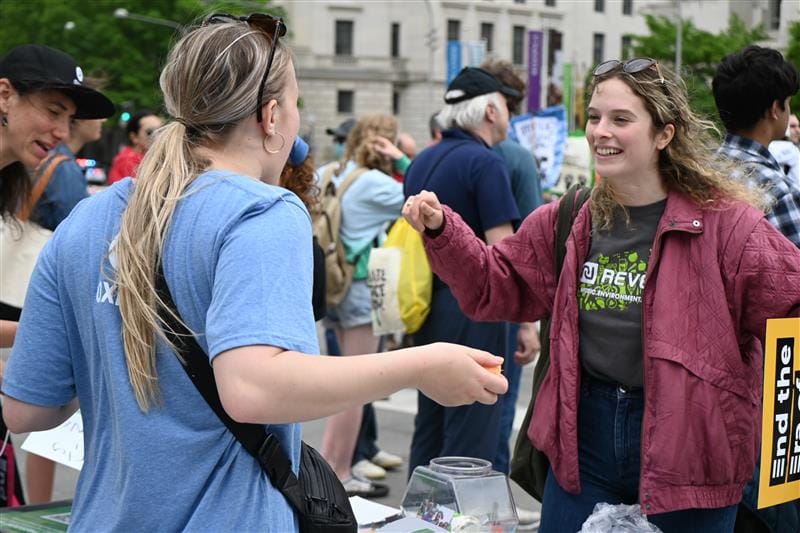Earth Day and Collective Action

On Earth Day 2023, we joined a youth-led coalition of activists, our partners at Oxfam, and other organizations to declare an End to the Era of Fossil Fuels. Together, we rallied in Washington, DC to demand that leaders take action to begin the transition to clean energy.
“The Biden administration and Congress must commit the United States to urgent and deep emissions reductions, holding the fossil fuel industry to account, and enacting solutions that prioritize human rights,” said Oxfam America’s Climate Campaign Lead Margaret Kran-Annezstein. As a collective voice, we let the White House know what the citizens of America want: ACTION.
One of the most pressing challenges we face today is reducing our dependence on fossil fuels and transitioning to renewable energy sources. In order to ensure a sustainable future for all, we cannot allow new fossil fuel projects to move forward. It’s crucial that the U.S. government and other decision-makers take a stand against the continued use of fossil fuels. Our planet is in a state of crisis, and we can no longer afford to fuel the flames.
The era of fossil fuels has had a massive impact on our planet, from air pollution to climate change. It’s time for us to transition away from this outdated and damaging energy source and move towards renewable energy. By doing so, we can help to reduce our carbon footprint, improve air quality, and create a more sustainable future for generations to come. The good news is that the technology already exists to make this transition, all we need is the political will and collective action to make it happen. So let’s work together to end the era of fossil fuels and embrace a cleaner, greener future.

Fossil fuels, such as coal, oil, and gas, are harmful for several reasons:
- Climate Change: The burning of fossil fuels releases carbon dioxide and other greenhouse gasses into the atmosphere, which trap heat and cause global temperatures to rise. This leads to climate change, which can have devastating impacts on ecosystems, wildlife, and human populations.
- Environmental Justice: The construction of fuel lines and the production of fossil fuels has major impacts on the environmental health of Indigenous communities. The efforts of frontline Indigenous activists have been essential in combating these environmental injustices. A report by the EPA reveals that socially vulnerable populations in the United States are experiencing unequal impacts of climate change.
- Air Pollution: Fossil fuels are a major source of air pollution, which can cause respiratory problems, heart disease, and other health issues. The pollution from burning these fuels can also harm crops, forests, and other plants.
- Environmental Damage: Extracting and transporting fossil fuels can cause significant environmental damage, such as oil spills and habitat destruction.
- Limited Availability: Fossil fuels are finite resources that will eventually run out. As they become scarcer, the cost of extracting and using them will likely increase, leading to economic instability.

Overall, the use of fossil fuels is unsustainable and harmful to both the environment and human health. It’s crucial that we transition to cleaner, renewable energy sources to mitigate these negative impacts and build a more sustainable future.
Of course, organizing can be challenging. It takes time, effort, and a willingness to step outside of your comfort zone. But the rewards can be immense. By working together with others, you can create a sense of community and solidarity that’s hard to find elsewhere. And when you see the impact of your efforts, whether it’s a new law being passed or a company changing its practices, it’s incredibly empowering.

So, what can you do to get involved in environmental activism outside of election season?
Here are a few ideas to get you started:
- Join a local environmental group. Whether it’s a student club or a community organization, there are likely groups in your area that are working to protect the environment. Joining one of these groups can provide a sense of community and give you opportunities to get involved in local activism.
- Attend rallies and marches. When there’s an issue that you’re passionate about, attending a rally or march can be a powerful way to show your support. These events bring people together and can send a strong message to those in power.
- Volunteer with an environmental organization (like REVERB!). Many environmental organizations rely on volunteers to help with everything from organizing events to conducting research. By donating your time and skills, you can make a real difference.
- Speak out on social media. While social media can sometimes feel overwhelming, it can also be a powerful tool for activism. By sharing articles, videos, and other content related to environmental issues, you can help raise awareness and start important conversations.
Remember, even small actions can make a big difference. Every step you take toward environmental activism is a step toward a healthier, more sustainable future. So let’s get out there and make our voices heard! Check out our Music Climate Revolution page for more information on how you can take individual action to reduce your dependence on fossil fuels!
We come from diverse backgrounds and are working towards a wide range of intersecting causes, including issues related to plastics, biodiversity, housing, anti-war efforts, immigrant rights, and gender and racial equality. Our struggles are interconnected, and our movement is strengthened by our collective efforts.
